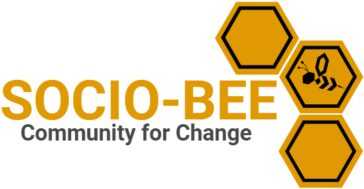Visits to sites associated with death and suffering are considered emotionally laden. Few studies empirically investigated visitor emotions at such sites. This study examines emotional responses of 241 visitors to concentration camp memorial Neuengamme and assesses how emotions are associated with long-term consequences of revisit intentions and positive word of mouth. Tourists experience negative emotions more intensely compared with positive emotions. Negative emotions predict long-term behavioral intentions more than positive emotions do. Shock and sadness are of particular importance. This study suggests that certain negative emotions also have the power to broaden-and-build and may have long-term behavioral consequences.
LINK
We collected, reviewed and edited articles submitted to Sustainability on the topic of communicative and behavioral interventions to increase sustainability.In this Special Issue, we would like to highlight research on interventions. How we can find interventions that help in encouraging (sustainable or less consumption) the use of fossil-free methods of transport, the implementation of renewable energy, etc. We invite you to submit your work to this Special Issue on “Communicative and Behavioral Interventions to Increase Sustainability” that contribute to the establishment of a sustainable future. We would like to collect a Special Issue that highlight evidence-based interventions to change behavior to establish the sustainable society.This Special Issue is positioned to bring together the best work on communicative and behavioral interventions. It can include (but is not limited to) dialogue, stakeholder engagement, educational programs, nudging, community building, corporate social responsibility (CSR), social innovations, etc. We would like you to focus on evidence-based interventions and encourage practical insights or ideas for applications of findings
LINK
Objective: The aim of this study was to investigate age group, gender, and baseline depressive symptom severity as possible effect moderators in (1) cognitive versus behavioral based CBT-modules and (2) sequences of modules that started either with cognitive or behavioral modules in indicated depression prevention in adolescents. Method: We conducted a pragmatic cluster-randomized trial under four parallel conditions. Each condition consisted of four CBT-modules of three sessions (cognitive restructuring, problem solving, behavioral activation, relaxation), but the sequencing of modules differed. The CBT-modules and sequences were clustered into more cognitive versus more behavioral based approaches. The sample involved 282 Dutch adolescents with elevated depressive symptoms (Mage = 13.8; 55.7% girls, 92.9% Dutch). Assessments were conducted at baseline, after three sessions, at post-intervention and 6-month follow-up with self-reported depressive symptoms as the primary outcome. Results: We found no evidence for substantial moderation effects. Age group, gender, and depressive symptom severity level at baseline did not moderate the effects of cognitive versus behavioral modules after three sessions. No evidence was also found that these characteristics moderated the effectiveness of sequences of modules that started either with cognitive or behavioral modules at post-intervention and 6-month follow-up. Conclusion: Cognitive and behavioral based modules and sequences in the prevention of depression in adolescents might apply to a relatively wide range of adolescents in terms of age group, gender, and severity levels of depressive symptoms.

SOCIO-BEE proposes that community engagement and social innovation combined with Citizen Science (CS) through emerging technologies and playful interaction can bridge the gap between the capacity of communities to adopt more sustainable behaviours aligned with environmental policy objectives and between the citizen intentions and the real behaviour to act in favour of the environment (in this project, to reduce air pollution). Furthermore, community engagement can raise other citizens’ awareness of climate change and their own responses to it, through experimentation, better monitoring, and observation of the environment. This idea is emphasised in this project through the metaphor of bees’ behaviour (with queens, working and drone bees as main CS actors), interested stakeholders that aim at learning from results of CS evidence-based research (honey bears) and the Citizen Science hives as incubators of CS ideas and projects that will be tested in three different pilot sites (Ancona, Marousi and Ancona) and with different population: elderly people, everyday commuters and young adults, respectively. The SOCIO-BEE project ambitions the scalable activation of changes in citizens’ behaviour in support of pro-environment action groups, local sponsors, voluntary sector and policies in cities. This process will be carried out through low-cost technological innovations (CS enablers within the SOCIO BEE platform), together with the creation of proper instruments for institutions (Whitebook and toolkits with recommendations) that will contribute to the replication, upscaling, massive adoption and to the duration of the SOCIO-BEE project. The solution sustainability and maximum outreach will be ensured by proposing a set of public-private partnerships.For more information see the EU-website.
